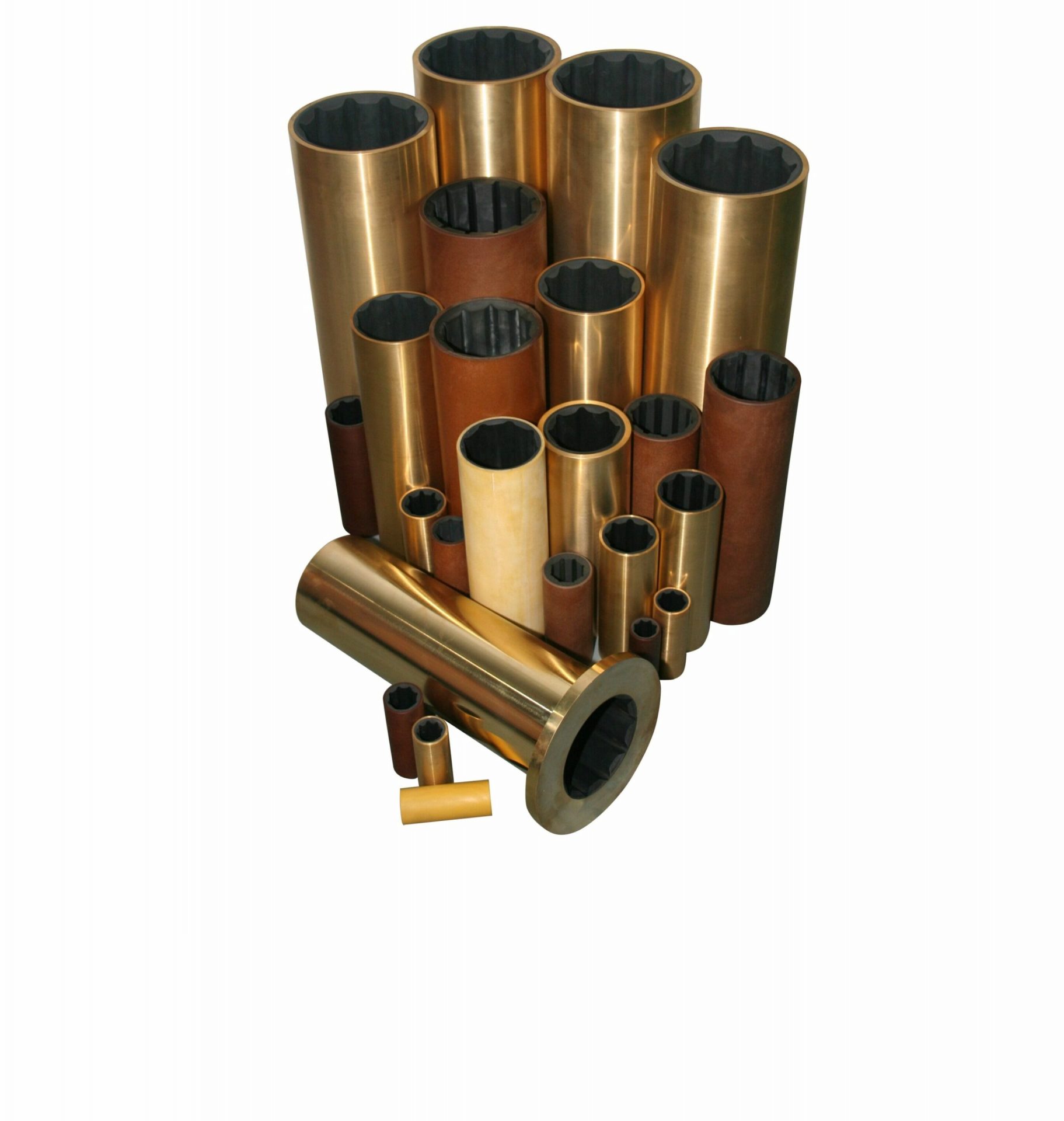Brass Vs Phenolic Bearings: A Detailed Comparative Study
Brass Vs
Phenolic Bearings: A Detailed Comparative Study
Introduction
Bearings are an integral part of many mechanical systems.
Whether it's in an automobile, an industrial machine, or a boat propeller
shaft, bearings play a critical role in reducing friction and ensuring smooth
operation. Today, we are going to delve into a comparison of two popular types
of bearings generally used in the marine application: the Brass Bearings and
the Phenolic Bearings. Let's examine their characteristics, pros, and cons.
Brass Bearings
#BrassBearings
Traditionally, brass has been the material of choice for
many types of bearings. Brass Bearings are no exception. These bearings are
constructed using high-quality naval brass—a special type of brass that is
corrosion-resistant and extremely durable. They are designed to reduce friction
and noise in marine environments and are a long-standing choice in the boat
building and maintenance industry.
Pros of Brass Bearings:
- Durability:
Made from naval brass, these bearings boast high resistance to corrosion,
particularly in marine environments.
- Heat
Conductivity: Brass bearings are better heat conductors. They can
distribute heat more evenly and can handle higher temperatures without
losing their structure or functionality.
- Noise
Reduction: Brass Bearings are designed to minimize noise during
operation.
Cons of Brass Bearings:
- Weight:
Brass bearings are generally heavier, which may be a concern for specific
applications.
- Cost:
These bearings are typically more expensive than other options due to the
cost of brass as a raw material.
Phenolic Bearings
#PhenolicBearings
Phenolic bearings are a modern alternative to traditional
materials like brass. Phenolic Bearings are made from engineered thermosetting
resins that are reinforced with synthetic fibres. This innovative combination
offers several unique benefits.
Pros of Phenolic Bearings:
- Lightweight:
Phenolic bearings are significantly lighter than their brass counterparts,
making them an excellent choice for applications where weight is a
concern.
- Cost-effective:
Due to the raw materials used, Phenolic bearings generally offer a more
economical choice.
- Lower
Friction: Phenolic bearings often offer lower friction coefficients,
which can result in less wear and tear on components.
Cons of Phenolic Bearings:
- Heat
Resistance: While phenolic bearings can handle average operating
temperatures, they may not perform as well under extreme heat conditions
compared to brass bearings.
- Environmental
Impact: The production process of phenolic bearings can have a higher
environmental impact, as it often involves non-renewable resources and can
release volatile organic compounds (VOCs).
Conclusion
When it comes to choosing between Brass Bearings and Phenolic
Bearings, the decision ultimately depends on your specific requirements. While
brass bearings offer superior heat resistance and durability, phenolic bearings
are lighter and more cost-effective. We recommend thoroughly considering the
operational conditions, your budget, and environmental concerns before making a
final decision.
#BearingsComparison #JohnsonBearings #BrassVsPhenolic
#MechanicalComponents #Ingotfme
Need Bearings, Shop Ingot’s range of cutlass marine
bearings, hard-wearing metallic Naval Brass and lightweight non-metallic
Phenolic bearings. For use on propeller shafts, rudder tubes, rudder bearings,
struts, stern tube bearings, p-brackets and rudder stock. Internally reinforced
nitrile rubber provides outstanding resistance to abrasion and wear.
https://ingot.net.au/product-category/marine-products/marine-brass-phenolic-bearings/

Comments